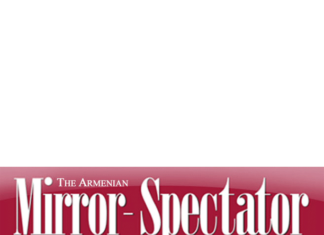By Edmond Y. Azadian
Serving as a geopolitical bridge of NATO structure between Europe and the Middle East, Turkey improved its economy and international image to a point where Ottomanist ambitions were resurrected once more. The duo of Premier Recep Tayyip Erdogan and Foreign Minister Ahmet Davutoglu were credited with Turkey’s high-flying position.
As a scholar-diplomat, Foreign Minister Davutoglu had begun to nurture and nostalgically portray the Ottoman Empire, when subject nations lived “in harmony” and “brotherly love,” the Armenian Genocide and the bloodbaths from the Balkans to North Africa not withstanding.
Fueled by the dynamics of a booming economy and the hegemony forged with Israel in the Middle East, Ankara entertained visions of reshaping the region in a configuration matching its dreams.
Davutoglu proudly proclaimed Turkey’s new policy of zero problems with neighbors, which basically meant to force down Ankara’s policies on its neighbors, under the umbrella of NATO powers.
At this time, Mr. Erdogan’s “mildly” Islamist party, in power for the last decade, had to put the brakes on its domestic and foreign policy ambitions because it realized that it was biting more than it could chew.









